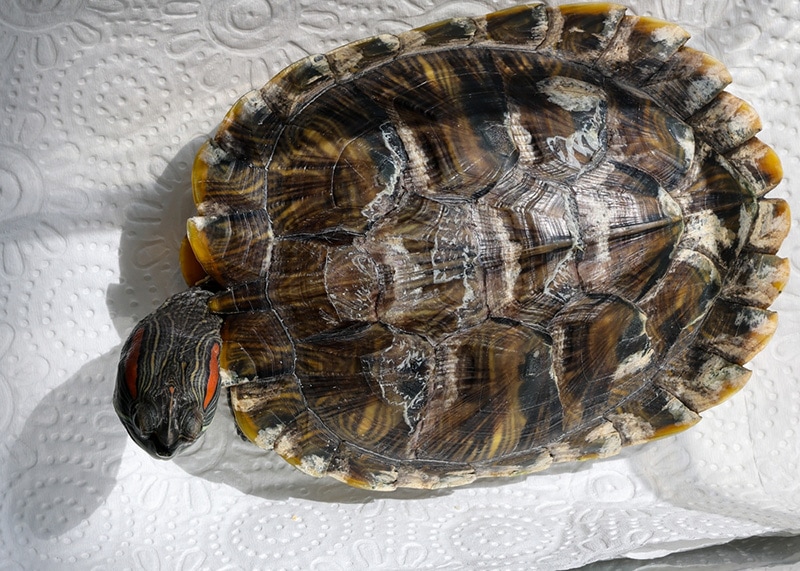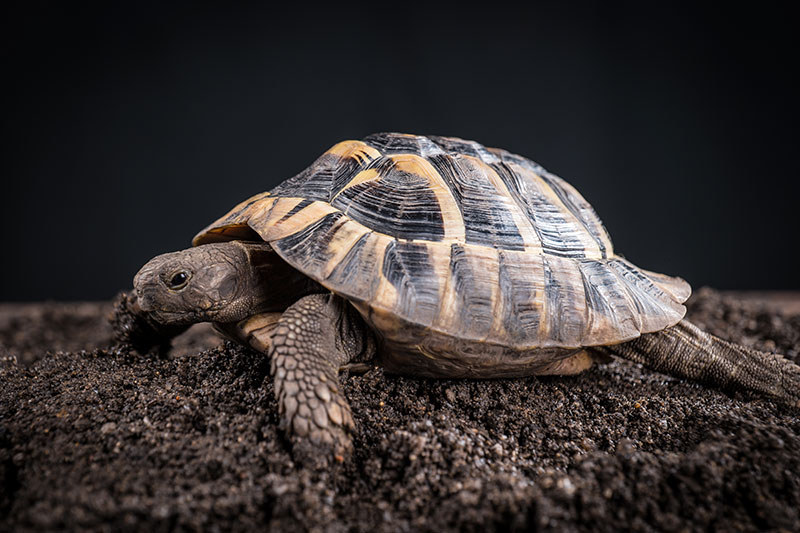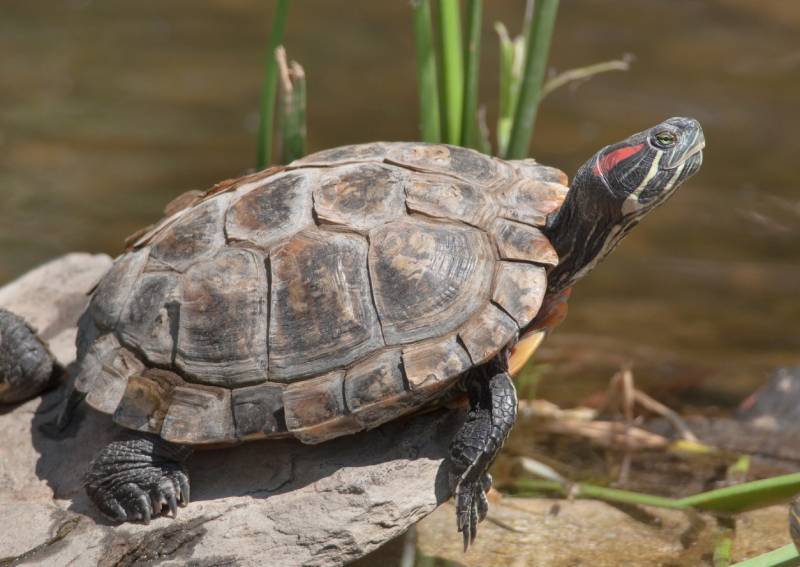How Much & How Often to Feed Tortoises: Vet-Reviewed Guide

Updated on
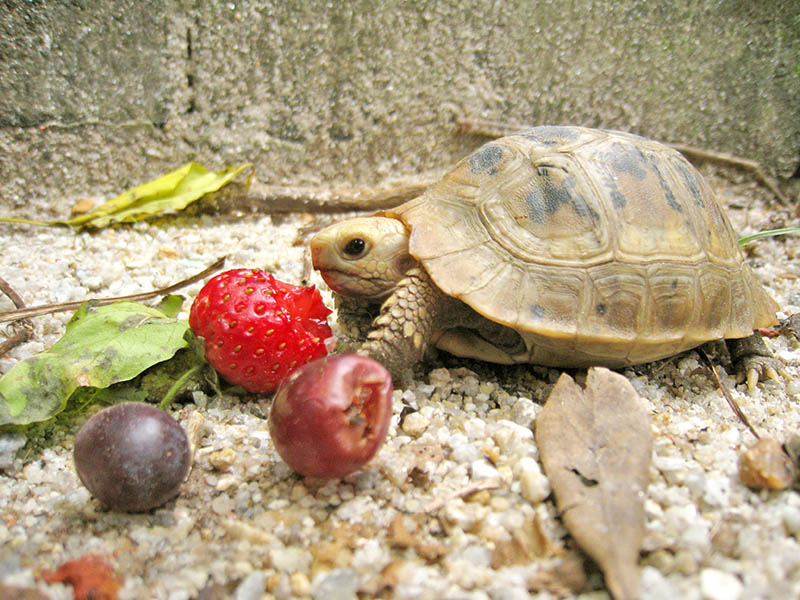
Dialing in a tortoise diet can be surprisingly challenging compared to common pets. The signs of a poor diet that you might see in any other animal aren’t as apparent in an easygoing, shelled reptile. Is your pet lethargic, inactive, or slow-moving? That might be alarming if you’re dealing with a dog or cat, but it sounds like your typical, healthy tortoise. Add in a giant shell to hide any weight gain, and accurately gauging their health can seem almost impossible.
Consequently, many use simple rules and consistency to maintain their tortoise’s weight. On of these rules is, that you should feed your adult tortoise amount of food to match the size of their shell, approximately 5 out of 7 days a week, or less. But with numerous pet tortoise breeds of different sizes, generalizing their needs isn’t always appropriate. If you’re worried about your reptile’s eating habits, we’ll explain how much and how often to feed tortoises.
How Much to Feed Tortoises
There isn’t an exact amount to feed a tortoise, given the different body types among the breeds and each pet’s unique lifestyle and diet. Many owners follow the straightforward rule of feeding their tortoise enough food to match the size of their shell.
Tortoises have to work for their food in the wild, limiting the amount they can eat in one day. We often overfeed them as pets, providing what we think is reasonable but is, in truth, much more than they need. The best route in most cases is to start with the tortoise shell-sized amount of food. Then, monitor your tortoise’s feeding and growth habits and adjust accordingly.
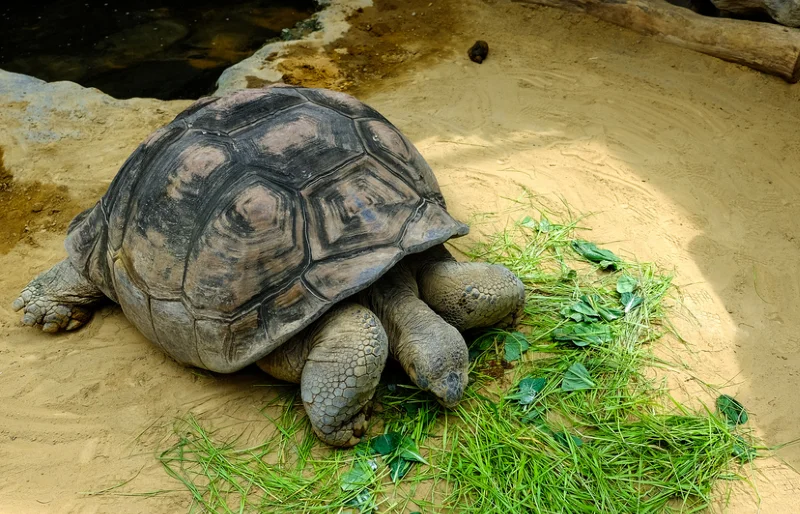
How Often Do Tortoises Eat?
Adult tortoises typically don’t need food every day. Feeding once daily in the morning for five out of seven days of the week is usually suitable. They should always have fresh water available.
During their several-year growth, young tortoises can eat daily. Once they reach their full size, skipping a meal or two is tolerable. Giving your turtle 1–2 days of feeding rest gives their slow-working metabolisms time to process the food.
What Do Tortoises Eat?
Tortoises typically enjoy a plant-based diet at home. They need adequate calcium, protein, fiber, and other essential nutrients from organic vegetables, succulents, flowers, weeds, grasses, and greens. It is very important to research the diet required for the species that you own as the following recommendations are generalized. Food choices should have as much variation as possible and be similar to their natural daily diet. Generally their diet should be around 85% vegetables ( dark leafy greens, grasses), 10% fruits and 5% high protein foods. A few popular options include:
- Sow thistle
- Collard greens
- Clover
- Dandelion leaves
- Mulberry
- Kale
High-quality raw foods are preferable over store-bought commercial foods, but these can be used and supplemented with high fiber food items. Numerous vegetables, fruits, and flowers are incompatible with a tortoise’s digestion, such as protein-rich legumes and toxic flowering plants.
Supplementation with a vitamin/mineral powder with a high calcium to phosphorus ratio, is required for pet tortoises and is especially important for those not provided with a varied enough diet and without exposure to natural sunlight. Appropriate UVB lighting in their enclosure is also needed for normal Vitamin D and therefore calcium metabolism, to keep their shells and bodies strong. Tortoises can enjoy supervised time outside to graze on grass, clover, and weeds while taking in some sun.
The diet depends primarily on the tortoise type. Different sizes entail varying amounts of daily food, and some tortoises have more inclusive diets that may feature insects, worms, and other small invertebrates.
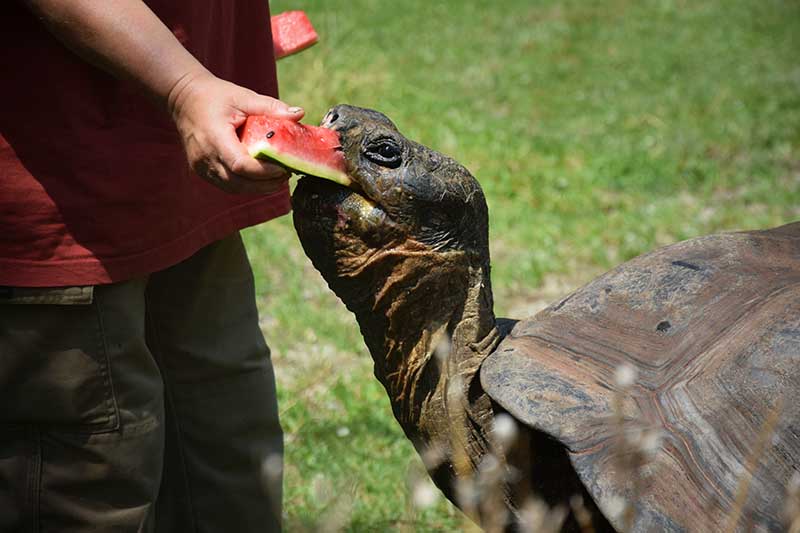
 How to Monitor Your Tortoise’s Weight
How to Monitor Your Tortoise’s Weight
The best way to manage your tortoise’s food intake is to watch their eating habits and weigh and measure them. For both young and older tortoises it’s important to know whether they are a good weight for their size as an indicator of their health and when considering whether or not to hibernate them.
Hibernation and Eating Habits
If your tortoise is one of the hibernating (or brumating, to be accurate) varieties and you choose to let them slumber through the winter, you’ll have to adjust their feeding routine and habitat. Only certain tortoises hibernate, and you should only pursue it if your tortoise is healthy and old enough.
Talk with your vet about hibernating preparations for your tortoise. You’ll generally need to slowly decrease their daily food amounts before stopping their feeding entirely a few weeks before hibernation.
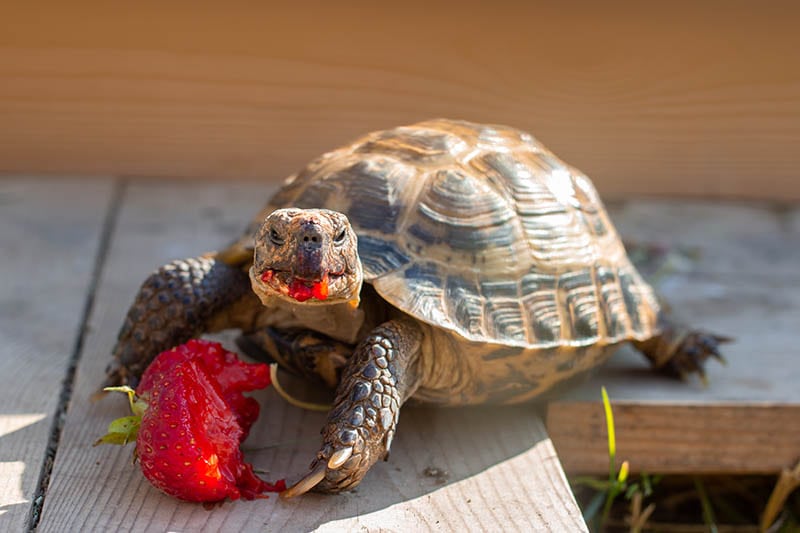
Can Your Tortoise Overeat?
Tortoises in the wild are relatively disciplined in their eating habits. When they feel full, they stop feeding, naturally keeping their weight in check. Domesticated tortoises don’t have the same restraint, and overeating and weight gain are common.
Overeating and Health Issues
One of the most prevalent signs of overeating in indoor tortoises is pyramiding. The scutes across the tortoise’s shell swell and expand upward, creating unnatural pyramid shapes. Excessive protein intake and improper temperature and humidity levels are a few contributing factors leading to abnormal growth. You’ll typically see this during the tortoise’s first few years of development.
Mild pyramiding doesn’t seem to entail additional damaging health effects, though it can complicate the mating process. Correcting husbandry practices immediately after seeing the onset of pyramiding is critical in preventing more severe health problems.
Tortoises can also develop awkward skin folds around their limbs and neck, which will become visibly fatter as they overeat. Difficulty retracting their head and limbs into their shell can become challenging at that point. While they struggle to move, they can open their body to injury, sores, and infections. Organs and bodily systems can face additional stress, affecting your tortoise’s quality of life and lifespan.
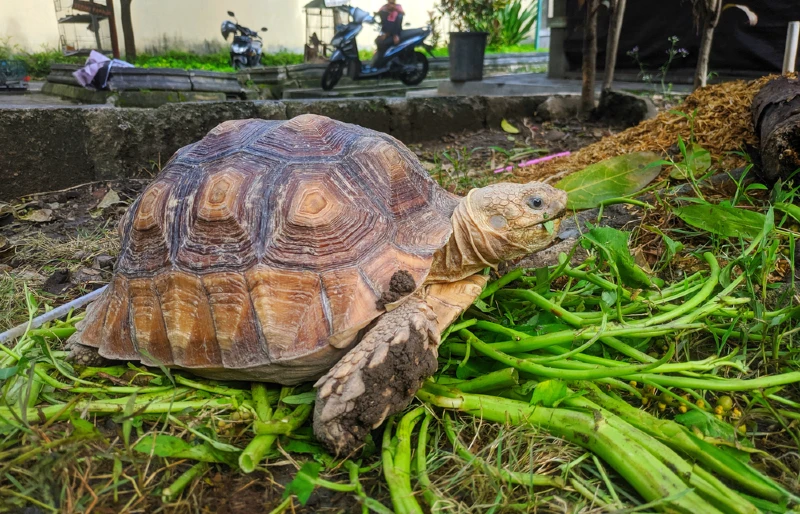
Final Thoughts
While there’s no single answer to how much or how often you should feed your tortoise, you can’t disregard the value of a proper diet and feeding routine. Diverse, high-quality foods are vital to growth, shell development, and ensuring many years of happiness.
Diet is only one of several husbandry aspects contributing to healthy digestion, organ function, and weight gain. Talk to your vet and research your specific species to understand the feeding routine and habitat that will allow them to thrive. Watch them closely, and make ongoing adjustments as needed to keep your tortoise comfy.
See also:
- How to Tell the Sex (Gender) of a Turtle: A Comprehensive Vet-Reviewed Guide
- Can Tortoises Eat Cilantro? Vet-Reviewed Nutrition Facts & FAQ
Featured Image Credit: seasoning_17, Shutterstock


